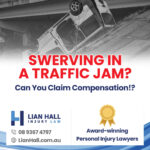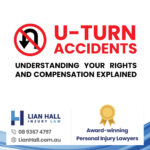In a recent case [August 2022] Mr Walker was at a hospital visiting his very ill father. At about 10:00 am he popped out to a local servo to buy cigarettes. As he drove out of the servo to head back to the hospital the Police pulled him over. He was pulled over at about 10:20 am. The Police pulled him over and accused him of hooning. Mr Walker was shocked and denied the accusation. He explained to the Police that he needed to urgently get back to the hospital because his father was very ill. The Police rang the hospital and confirmed that Mr Walker was telling the truth. Nevertheless, the Police insisted on issuing an infringement and impounding Mr Walker’s car and kept on the side of the road in full view of passing traffic. The Police insisted that he stay with them until a tow truck could come to take his car away. Mr Walker was shocked that he was kept waiting while they completed paperwork. He offered to leave the keys with the Police but the Police refused. Eventually, at about 11:20 am the Police let him go.
Mr Walker’s case
Mr Walker sued the Police for malicious prosecution and wrongful detention. Initially, the District Court rejected his claim. Mr Walker appealed to the Supreme Court. The Supreme Court agreed with Mr Walker. The appeal court said that the Police Powers & Responsibilities Act [2000] did not give the Police the power to detain Mr Walker while they completed paperwork to impound his car. The Court said that Mr Walker had been detained by the Police on the side of the road and that the Police had left their flashing lights on. Mr Walker had been detained on the side of the road in full view of passing traffic, and this had caused hurt, distress and embarrassment.
Compensation
Mr Walker asked the Court for $200,000 as Aggravated Damages. In personal injury compensation claims, there are different types of damages. There are subtle but important differences between Aggravated Damages, Exemplary damages, and Compensatory Damages. A simple explanation is that:
- Compensatory Damages is the amount paid to compensate you for your proven losses. For example, if you lose income, and can prove a loss of income, that would be part of your compensation.
- Aggravated Damages is an additional amount that a Court can award to show its displeasure at the conduct of a Defendant. Aggravated Damages is an amount awarded if a Defendant behaves so badly that the Court wants to punish the Defendant and deter the Defendant from acting like that again.
- Exemplary Damages are also an additional amount that a Court can order a Defendant to pay if the Court believes that the Defendant knew at the time that he was doing wrong but didn’t care.
The Court agreed that Mr Walker had been wrongfully detained for about an hour on the side of the road but said that this was not a case where Exemplary damages should be awarded – the Police concerned didn’t actually know that they didn’t have the power to detain. But that the Court did award Aggravated Damages. The Court looked at a number of cases and ultimately gave Mr Walker $30,000.
Lessons
The difference between Compensatory damages and Aggravated damages and Exemplary damages can be a little confusing. In our experience to get an award for Aggravated damages, you need to prove facts that show a very serious deviation from how a defendant should have behaved. Even so, the Courts generally don’t award large amounts for Aggravated damages but are more inclined to award an additional small global amount on top of your compensatory damages. If you have any questions about your personal injury compensation claim, call Lian Hall Injury Law for a confidential chat about where you stand.











